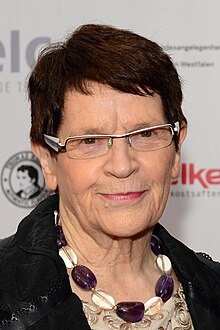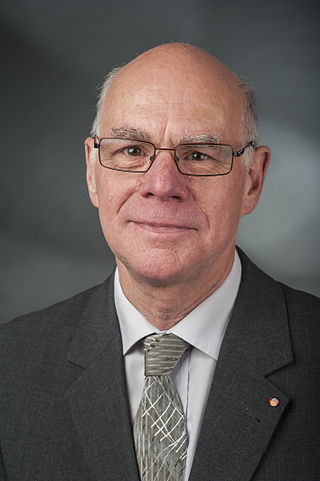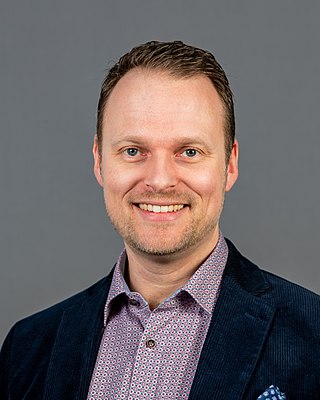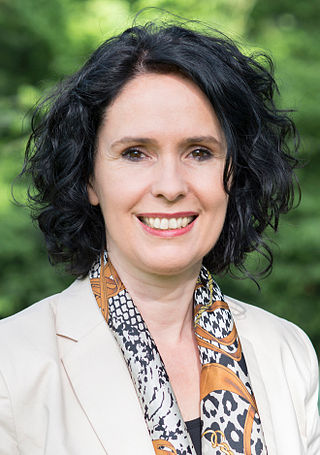You can help expand this article with text translated from the corresponding article in German. (December 2008)Click [show] for important translation instructions.
|
German: [ˈʁiːtaˈzyːsmuːt] ; born 17 February 1937) is a German politician of the Christian Democratic Union (CDU). She served as the tenth president of the Bundestag.
Contents
- Early life and education
- Career
- Early career
- Political career
- Political positions
- Life after politics
- Awards and recognitions
- Honorary doctorate degrees
- Personal life
- Bibliography
- References
- Sources
- External links
From 1985 to 1988, she served as Federal Minister for Youth, Family and Health (from 1986 youth, family, women and health) and from 1988 to 1998 as President of the German Bundestag. With close to 10 years, her tenure was the third longest in the history of the Bundestag. Only Eugen Gerstenmaier and Norbert Lammert held the position longer.
In addition to her political work, Süssmuth was President of the European Movement Germany (1994–1998) and member of the Advisory Board and Board of Trustees of the Bertelsmann Foundation (1997–2007).
Early life and education
Süssmuth was born and spent her childhood in Wadersloh. After graduating from high school (Emsland-Gymnasium) in Rheine in 1956, she completed a degree in Romance studies and history in Münster, Tübingen and Paris, which she finished on 20 July 1961 with the first state examination (Staatsexamen) for teaching. This was followed by postgraduate studies in educational science, sociology and psychology.
In 1964, she then received her Ph.D. phil. at the University of Münster. Her dissertation was titled "Studies on the Anthropology of the Child in contemporary French literature" ("Studien zur Anthropologie des Kindes in der französischen Literatur der Gegenwart").
Süssmuth graduated as a Doctor of Philosophy from the University of Münster in 1964. From 1966 until 1982, she was a faculty member in education at TU Dortmund University, Ruhr University, and their predecessor institutions.
Career
Early career
Rita Süssmuth | |
|---|---|
 Süssmuth in 2014 | |
| President of the Bundestag West Germany until 1990 | |
| In office 25 November 1988 –26 October 1998 |
This section of a biography of a living person does not include any references or sources .(January 2021) |
From 1963 to 1966, Süssmuth worked as a scientific assistant at the universities of Stuttgart and Osnabrück and from 1966 as a lecturer at the Pädagogische Hochschule Ruhr. From 1969 to 1982, she had a teaching assignment at the Ruhr-Universität Bochum for International Comparative Education.
In 1971, Süssmuth was appointed professor of Educational Science at the Pädagogische Hochschule Ruhr. In 1973, she accepted the call of the TU Dortmund University. In 1971, she also began working on the scientific advisory board of the Federal Ministry of Family Affairs.
From 1982 to 1985, Süssmuth was the director of the Institut Frau und Gesellschaft in Hanover. During her time as an active politician, she gave block seminars at the University of Göttingen.




















